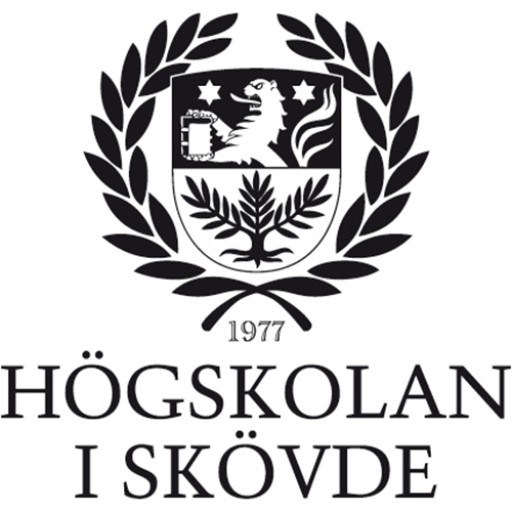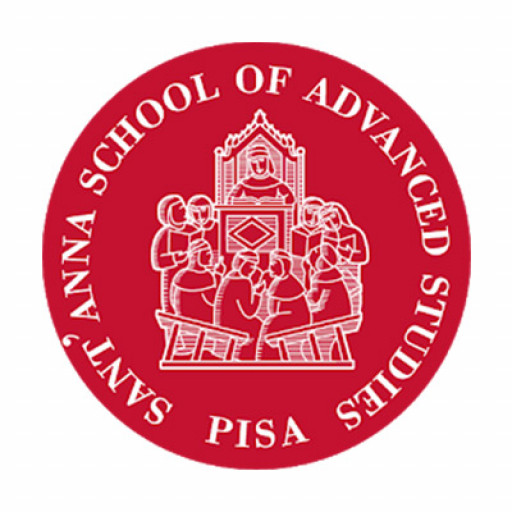Photos of university / #uniofskovde
The Master's Programme in Molecular Biotechnology at the University of Skövde is a comprehensive two-year program designed to equip students with advanced knowledge and practical skills in the field of molecular biology and biotechnology. This innovative program focuses on understanding and manipulating biological systems at the molecular level to develop solutions for challenges in health, agriculture, and industry. Throughout the programme, students gain a solid foundation in molecular genetics, biochemistry, bioinformatics, and laboratory techniques, preparing them for careers in research, development, and innovation within the biotechnology sector.
The curriculum combines theoretical coursework with hands-on laboratory work, fostering a deep understanding of key concepts such as genetic engineering, protein expression, and systems biology. Students also explore cutting-edge topics like synthetic biology, gene editing technologies, and personalized medicine, ensuring they stay at the forefront of rapidly evolving technological advancements. Emphasis is placed on critical thinking, problem-solving, and experimental design, enabling graduates to undertake independent research projects and contribute meaningfully to scientific progress.
The program encourages international collaboration and intercultural exchange, providing opportunities for students to engage with industry partners and participate in research projects. The University of Skövde's state-of-the-art laboratories and close ties to biotech companies offer a fertile environment for innovation and professional development. Graduates of the Master's Programme in Molecular Biotechnology are well-prepared for careers in academia, biotechnology companies, pharmaceutical industries, and research institutions or to pursue further doctoral studies. The program aligns with the needs of a dynamic and expanding industry, emphasizing ethical considerations, sustainability, and responsible innovation in biotechnology.
The Master's Programme in Molecular Biotechnology at the University of Skövde is designed to equip students with advanced knowledge and practical skills in the field of molecular biology and biotechnology. The programme focuses on understanding the molecular mechanisms that underpin biological processes and applying this knowledge to develop innovative solutions in health, industry, and environmental management. Throughout the course, students will explore a wide range of topics including genetic engineering, molecular diagnostics, bioprocessing, and synthetic biology. The curriculum combines theoretical lectures with laboratory exercises, offering a hands-on experience that prepares students for research or industry roles. Students will engage in project work and internships that provide real-world insights into biotech companies and research institutions. The programme emphasizes critical thinking, problem-solving, and experimental design, fostering a deep comprehension of biotechnological techniques such as PCR, DNA sequencing, and cell culture methods. By the end of the programme, graduates will have developed the ability to design and implement biotechnological solutions to complex biological challenges, contributing to advancements in medicine, agriculture, and sustainable development. The programme also prepares students for doctoral studies or careers in biotech startups, pharmaceutical companies, or regulatory agencies. With a focus on innovation and sustainability, the Master's in Molecular Biotechnology aims to produce highly skilled professionals capable of driving scientific progress and addressing global issues related to health and environment.
Program requirements for the Master's Degree Programme in Molecular Biotechnology at the University of Skövde typically include a bachelor's degree in a relevant field such as Biotechnology, Molecular Biology, Biochemistry, or a closely related discipline. Applicants must demonstrate proficiency in English, usually by providing standardized test scores like IELTS or TOEFL, meeting the university's specified minimum scores. Prior coursework should include foundational knowledge in molecular biology, genetics, biochemistry, and laboratory techniques. The selection process may involve an assessment of academic transcripts, motivation letter, and possibly an interview or an additional test to evaluate the applicant's motivation, relevant experience, and potential to complete the programme successfully. The university emphasizes interdisciplinary skills, so applicants with experience in bioinformatics, microbiology, or related fields are often viewed favorably. International students are required to submit documentation proving their educational background and language proficiency according to university guidelines. Additionally, some programmes may prefer applicants to have relevant work or research experience, although this is not always mandatory. The programme aims to prepare students for careers in research, industry, or healthcare sectors, thus applicants should demonstrate a clear interest in molecular biotechnology applications. There are no specific prerequisite courses listed beyond a relevant undergraduate degree, but applicants are encouraged to review the detailed admission criteria on the university’s official website. To enhance chances, applicants should ensure all application materials are complete, including CV, official transcripts, and any required supporting documents, submitted by the deadlines specified. This comprehensive selection process ensures that admitted students are well-prepared academically and professionally to undertake the advanced coursework and research activities involved in the programme.
The Master’s programme in Molecular Biotechnology at the University of Skövde provides diverse financing options to support students throughout their studies. International students are generally encouraged to explore various sources of funding to facilitate their educational journey. The university recommends applying for scholarships specifically designed for international students, which may include merit-based awards or need-based grants. Additionally, students are advised to investigate external funding opportunities such as national scholarship programs, governmental financial aid, and grants offered by organizations supporting international education.
Swedish government scholarships, like the Swedish Institute Scholarships for Global Professionals (SISGP), occasionally support students enrolled in science and technology fields, including molecular biotechnology. Students from the European Union or the European Economic Area may have access to different funding schemes, such as student loans or grants provided through their home countries or via the European Union's Erasmus+ programme. The Erasmus+ programme offers opportunities for mobility and funding for students participating in exchange semesters or internships abroad, which can supplement their financial resources.
The cost of tuition and living expenses in Sweden is often considered when planning funding strategies. The tuition fees for non-EU/EEA students are established by the university and must be budgeted for, along with accommodation, food, transportation, and other personal expenses. Many students supplement their income through part-time work; however, international students should verify visa regulations concerning employment possibilities during their studies.
The university’s career services and student support centres can assist students in finding part-time jobs, internships, and other financial aid opportunities. Some students may choose to fund their studies through personal savings, family support, or loans from private financial institutions. It is important for prospective students to thoroughly research and apply for relevant scholarships and financial aid early, as many funding options have specific deadlines and requirements. Overall, students should develop a comprehensive financial plan that considers all potential sources of income and support to successfully complete the Master’s programme in Molecular Biotechnology at the University of Skövde.
The Bachelor's programme in Molecular Biotechnology at the University of Skövde offers students a comprehensive education in the field of molecular life sciences, with a focus on the application of biotechnological methods to solve problems related to health, agriculture, and the environment. The programme is designed to equip students with both theoretical knowledge and practical skills, preparing them for careers in research, development, and industry sectors such as pharmaceuticals, biotech companies, food production, and environmental management.
Throughout the programme, students gain an understanding of molecular biology, genetics, microbiology, and biochemistry. The curriculum includes courses in molecular techniques, laboratory methods, bioinformatics, and systems biology, providing students with the competencies necessary to analyze and manipulate biological systems at the molecular level. Emphasis is placed on laboratory work, project-based learning, and teamwork to develop hands-on skills and collaborative abilities.
The programme also incorporates training in research methodology, ethics, and intellectual property rights, ensuring graduates are prepared for responsible scientific practice. There are opportunities for internships and industry collaborations, which give students valuable work experience and insights into real-world applications of molecular biotechnology.
The language of instruction is primarily English, enabling students to engage with international research and job markets. The programme typically spans three years, culminating in a Bachelor's degree (180 ECTS credits). Students who successfully complete their studies may choose to continue with master's programmes, either at the University of Skövde or other institutions.
The programme benefits from the university’s focus on interdisciplinary approaches and applied sciences, creating a stimulating learning environment. Students also have access to modern laboratories and research facilities, fostering innovation and active learning. Graduates are equipped to contribute to the development of new biotechnologies, enhance scientific understanding, and pursue further studies or careers in the rapidly evolving field of molecular biotechnology.
Overall, the Bachelor's programme in Molecular Biotechnology at the University of Skövde aims to develop highly skilled, versatile professionals who can meet the demands of a globally interconnected biotech landscape, contributing to advancements in health, sustainable development, and scientific innovation.







